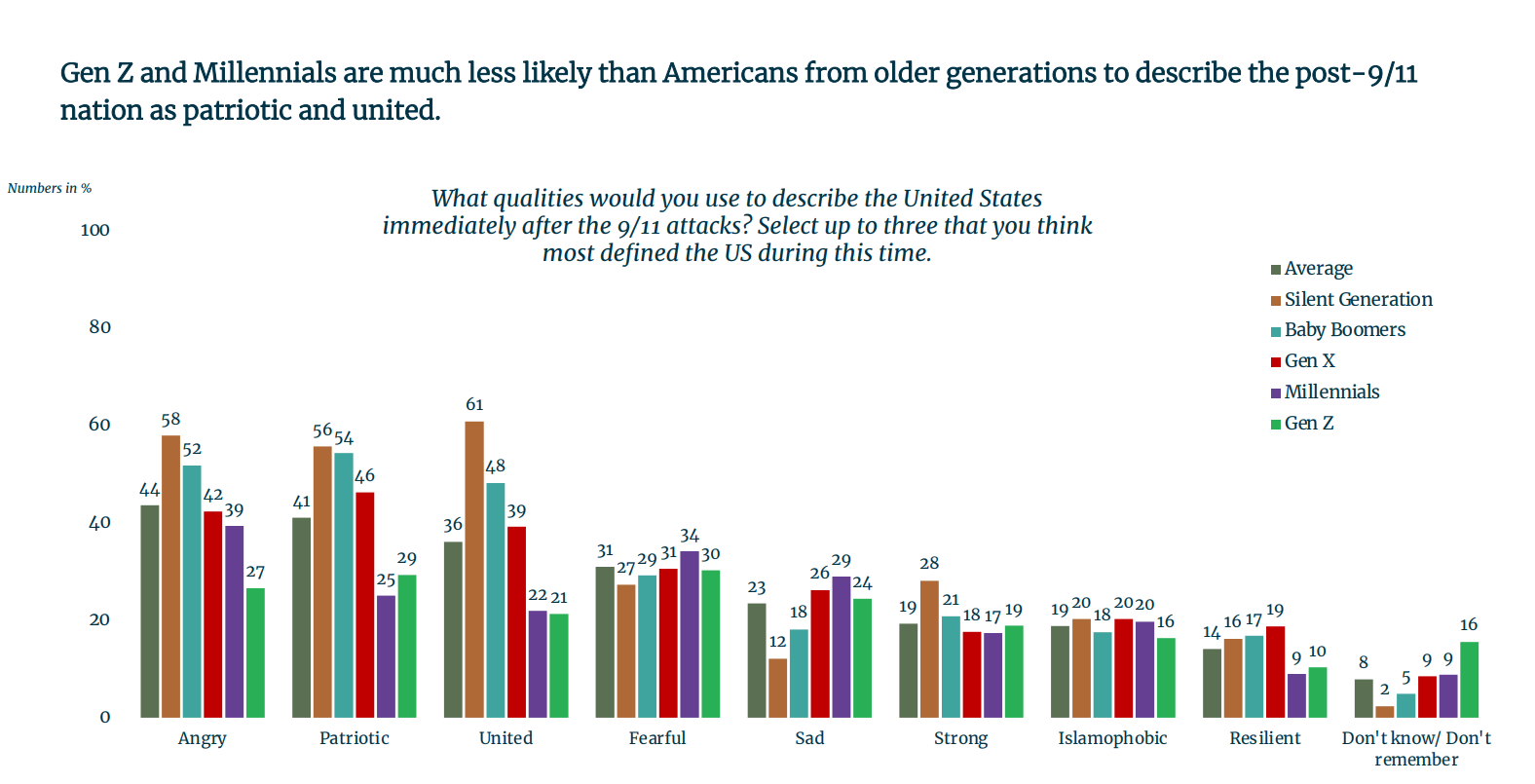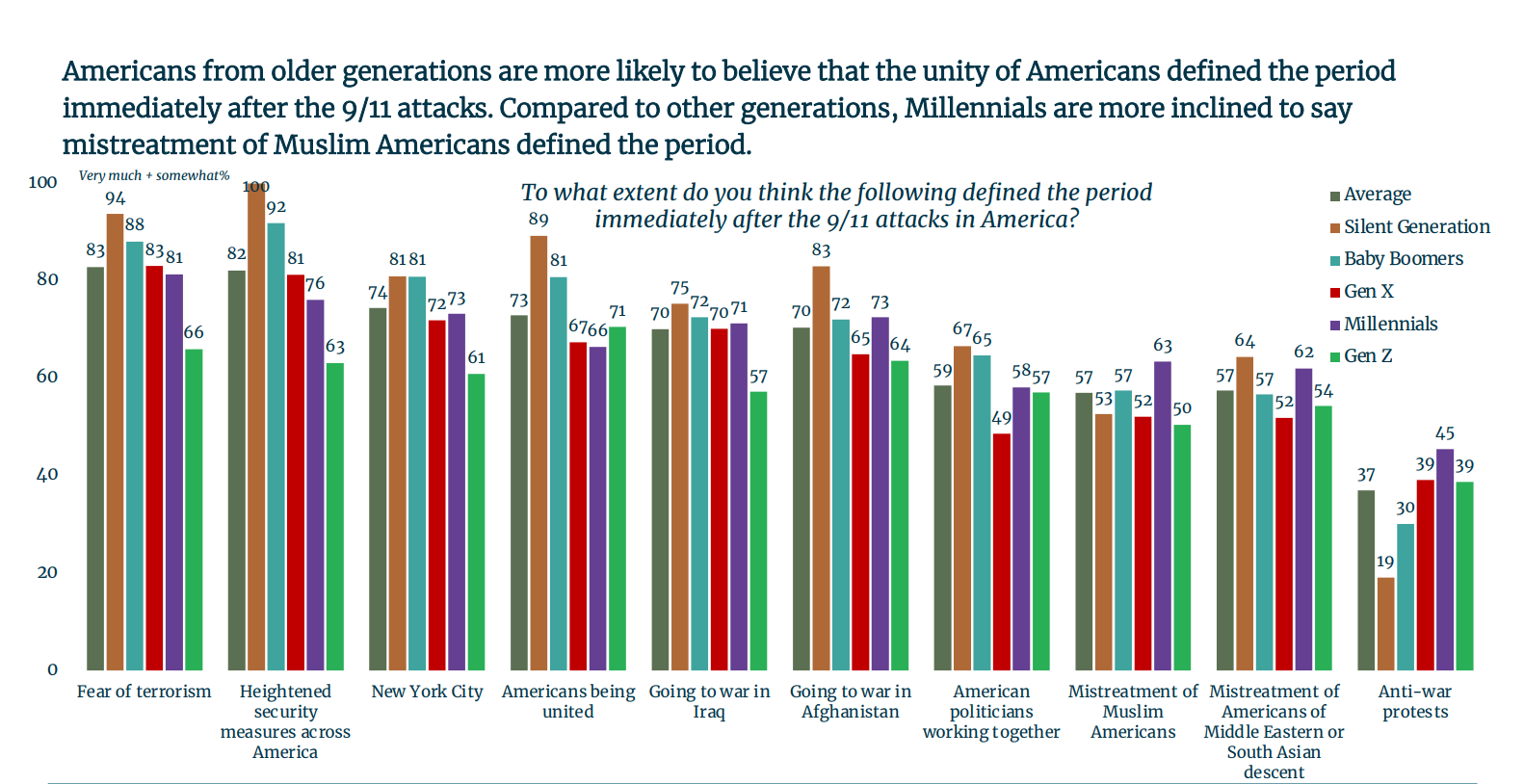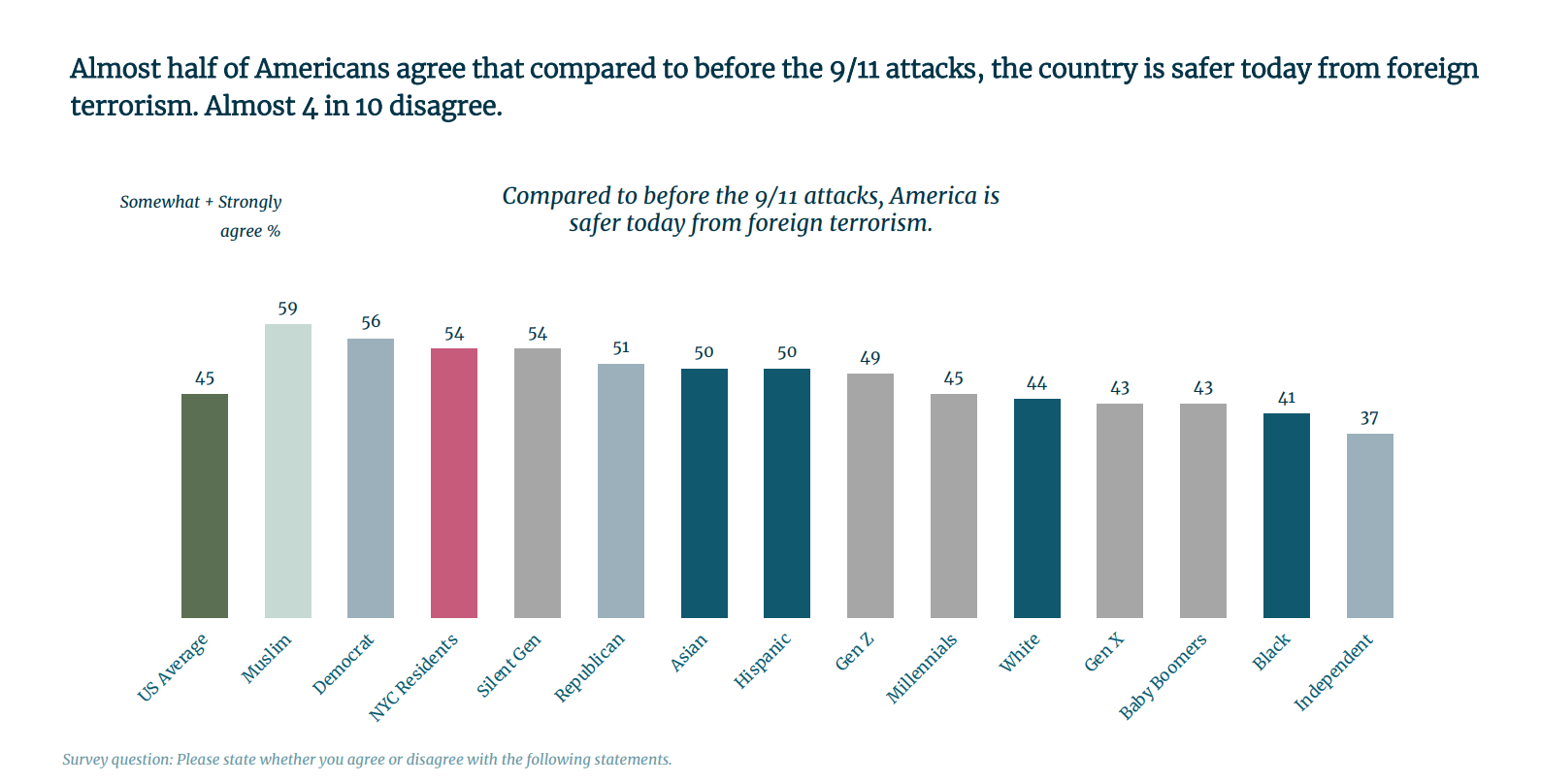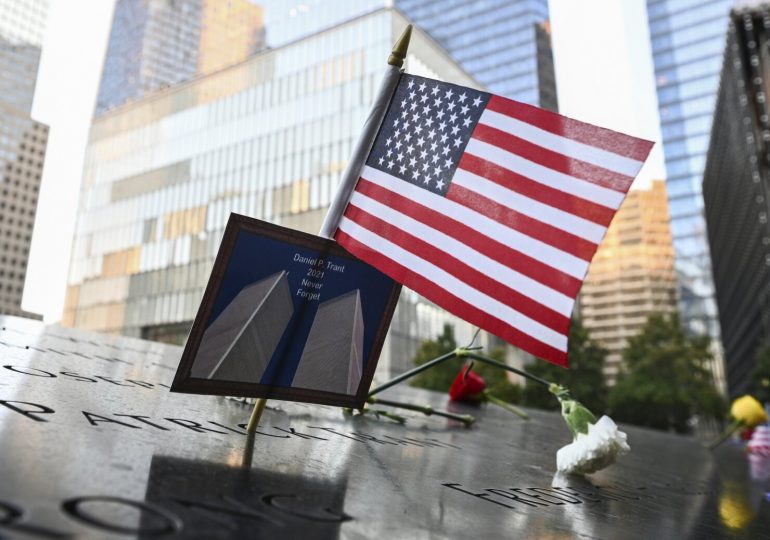Sunday will mark 21 years since nearly 3,000 Americans lost their lives in the Sept. 11 attacks.
And while the events are still etched in the minds of many, not all Americans feel the same about the events of that tragic day.
The findings, published in a report by the group More in Common and polling firm YouGov, signal that younger and older adults have differing views on the impact and significance of the 9/11 attacks.
- More National News
- More U.S. Politics News
- 21 years later: Remembering the Sept. 11 attacks
While on average, 73% of American adults report that feelings of unity defined the period immediately after the attacks, when dividing by age group, less than a quarter of millennials (22%) and Gen Z adults (21%) agree.

nation as patriotic and united. Click to enlarge graphic. (Courtesy More in Common)
Instead, millennial adults were more likely than any other age group to say that mistreatment of Muslim Americans and anti-war protests characterized that period. Overall, 63% of millennials held that view, according to the poll.

immediately after the 9/11 attacks. Compared to other generations, Millennials are more inclined to say
mistreatment of Muslim Americans defined the period. Click to enlarge graphic. (Courtesy More in Common)
The report also found that younger adults are less inclined than older adults to say that the events of 9/11 changed their lives. While 56% of all adults agreed with the statement, “The 9/11 attacks changed my life,” only about 38% of Gen Z respondents agreed. Another 38% of Gen Z respondents said the 9/11 attacks didn’t change their lives, and a quarter of Gen Z respondents said they weren’t sure.
Gen Z adults, the oldest of whom were born in 1997, were 4 or younger at the time of the attacks.
“We’re reaching the point where the memories we associate with the 9/11 attacks, and the
period immediately after, are solidifying how future generations will study and understand this
period in American History,” said Dan Vallone, executive director of More in Common U.S., in a news release.
“Approximately one in four Americans were born after the attack, and that number is set to grow to over half the population in 20 years. How we discuss 9/11 today will shape how future generations understand and pass down these memories.”
The report also found that Americans are divided on whether the county is safer today from foreign terrorism, compared to before the attacks. The majority of Muslim Americans — 59% — agreed that the country is safer, compared to 4 in 10 Americans on average.

The report also showed that political parties hold largely different ideas about the legacy of Muslim American prejudice following the attacks. Two-thirds of Democrats said Muslim Americans face either a lot or a fair amount of prejudice in America today, compared to just under a third of Republicans.
Despite the difference, the study points to many similarities in feelings of American pride across racial, religious, generational and political lines. Overwhelmingly, most Americans report feeling proud of their nationality and feel accepted in U.S. society, though younger, nonwhite American adults are less likely to indicate so.
Leave a comment








